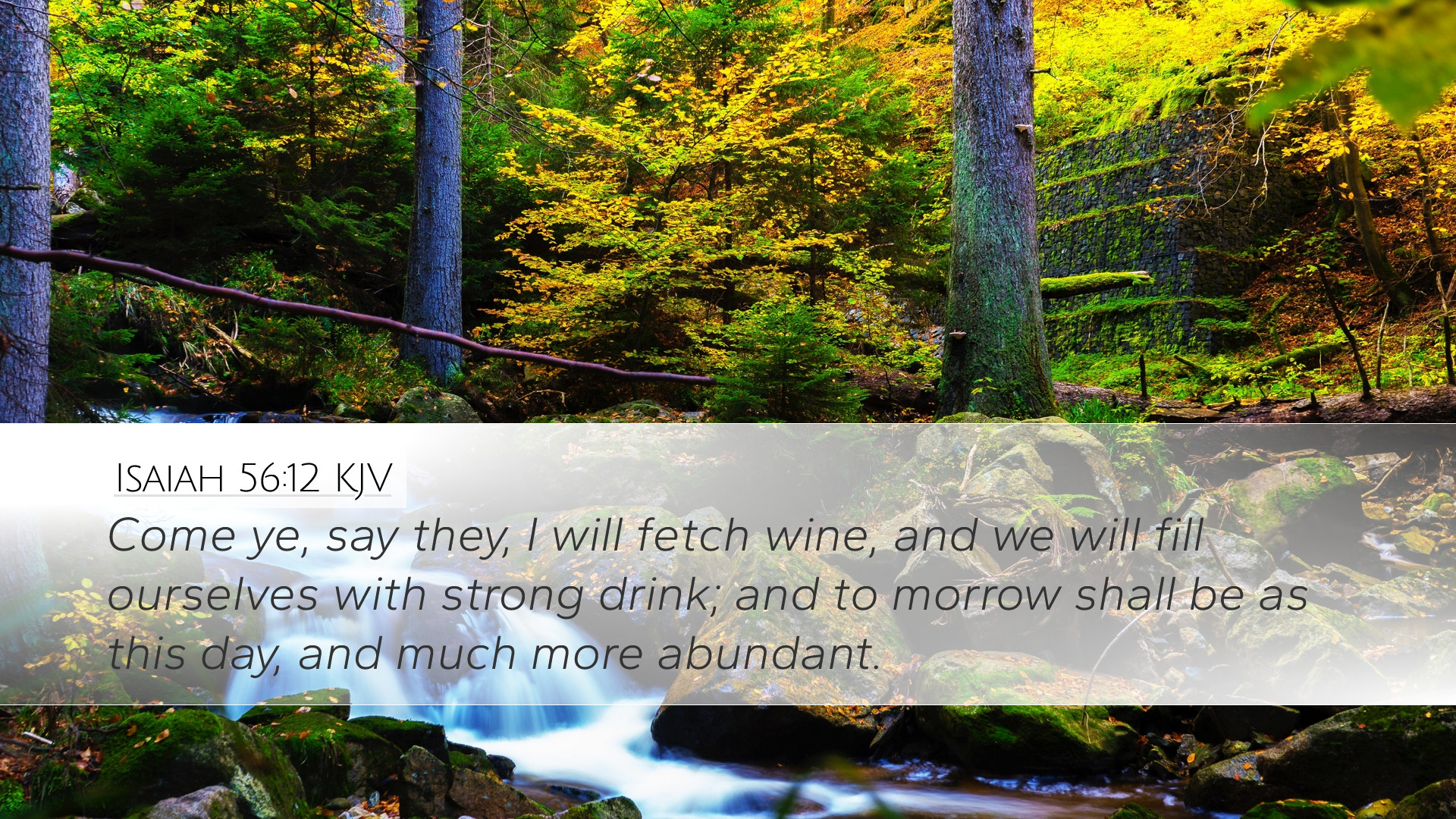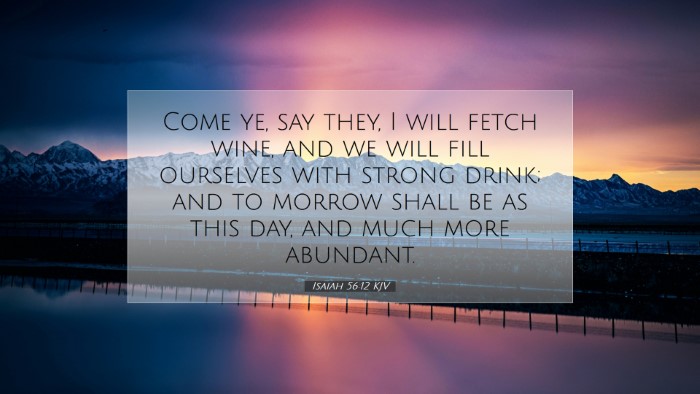Commentary on Isaiah 56:12
Isaiah 56:12 states:
"Come ye, say they, I will fetch wine, and we will fill ourselves with strong drink; and to-morrow shall be as this day, and much more abundant."
This verse reflects the attitude of some in Israel who were indulging in a hedonistic lifestyle, characterized by excessive drinking and a desire for pleasure. The underlying themes present in this verse can be explored with insights from various public domain commentaries.
Contextual Overview
In the book of Isaiah, particularly in this chapter, the prophet addresses various aspects of the faithful and the infidel. Here, he is exposing the contrasting behaviors exhibited by those who wish to follow the Lord versus those who pursue selfish desires.
Exposition of the Text
According to Matthew Henry, this passage serves as a commentary on the spiritual condition of the nation of Israel. It implies a critical evaluation of those who are lazily pursuing their own pleasures instead of being focused on their covenant with God.
Albert Barnes elaborates that the phrase “Come ye, say they” indicates an invitation among the people to join in this revelry, which signifies both a collective moral failure and a disregard for the sacred. This indulgence in strong drink serves as a metaphor for a broader abandonment of moral integrity and dependence on God.
Theological Implications
The theological implications of Isaiah 56:12 are profound. It reveals the human tendency towards self-indulgence and highlights the need for spiritual vigilance. It challenges leaders and congregants alike to evaluate their priorities.
- Human Nature and Sinfulness: Adam Clarke remarks that the insatiable thirst for pleasure can lead to spiritual decay. He calls attention to the fact that when the focus is on earthly pleasures, neglecting spiritual obligations can follow.
- Judgment and Accountability: The indulgence depicted in the verse indicates a broader principle of divine judgment. Those who live excessively “as this day, and much more abundant” may face consequences for their unbridled behavior.
Pastoral Applications
For pastors, Isaiah 56:12 offers crucial pastoral insights. It can inform preaching and teaching about the dangers of moral laxity and the importance of a balanced Christian life that places God at the center.
- Encouragement for Accountability: Pastors should encourage their congregants to build accountability structures that resist temptation and promote spiritual growth.
- Call to Reflection: The indulgent lifestyle warned against in the verse provides key material for reflection and self-examination among believers. Pastors might ask their congregations to contemplate their own motivations and pursuits.
Conclusion
Isaiah 56:12 is a significant verse that speaks volumes about the nature of humanity, the dangers of indulgence, and the necessity of remaining anchored in faith. By synthesizing insights from public domain commentaries by scholars like Matthew Henry, Albert Barnes, and Adam Clarke, we find that this verse serves as a solemn reminder of the perils that come with a life disconnected from the divine. It urges both individuals and leaders within the church to prioritize their relationship with God above all else, ensuring that their lives reflect spiritual truths rather than fleeting pleasures.


